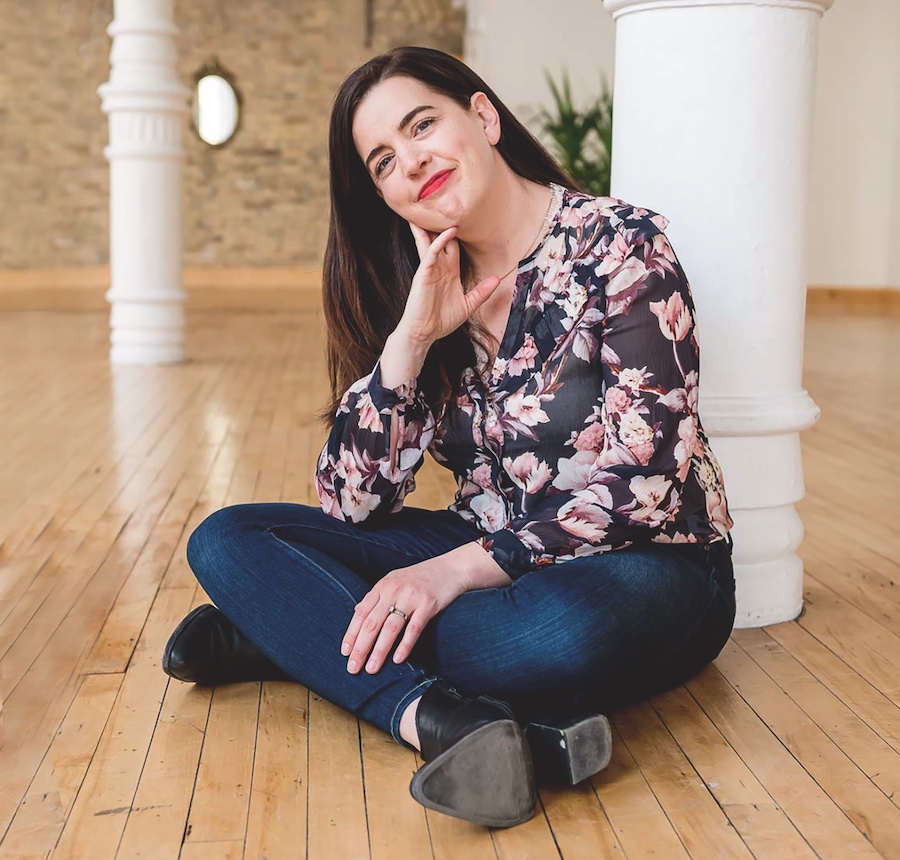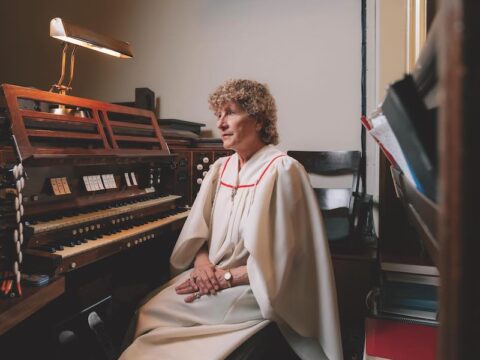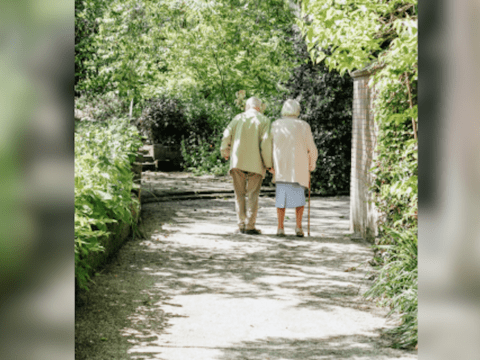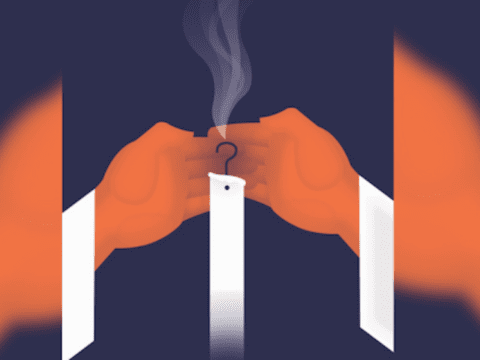Is it acceptable to lead a life that’s far from perfect? Are seemingly mundane days worthy of blessing? And are there truly nuggets of wisdom to be extracted from life’s worst moments? Canadian writer and academic Kate Bowler and co-author Jessica Richie explore these questions in their latest book, The Lives We Actually Have: 100 Blessings for Imperfect Days. In the book, Bowler — who was diagnosed with stage 4 colon cancer in 2015 at age 35, with a poor chance of survival beyond two years — offers witty blessings that highlight gratitude and hope while recognizing just how messy life can be. Bowler, who is originally from Winnipeg, is also an associate professor of American religious history at Duke Divinity School in Durham, N.C. She spoke to religion journalist John Longhurst.
John Longhurst: When did the idea for The Lives We Actually Have come to you?
You may unsubscribe from any of our newsletters at any time.
Kate Bowler: It began around the very start of the pandemic. I was talking with Jessica Richie, the executive producer of our podcast, Everything Happens. We thought the pandemic was an experience that was very specific to our audience — like, “Oh, these are people who really understand what it means to go through a hard time.” It felt like we were talking to the whole world who shared that cracked-open feeling. So we started writing blessings for our podcast listeners, and that quickly became a kind of spiritual habit that I suppose I didn’t have before.
JL: What was your understanding of blessing up to that point?
KB: At first, my interest in the language of blessing was strictly a part of my academic study of this broad cultural phenomenon of trying to find the right word for spiritual luck. “Who am I? I am #blessed” is a shorthand way of saying “Aren’t I lucky?” with a hint of “Isn’t this perhaps what I deserve?” The #blessed phenomenon is such a popular way of talking about gratitude but is also a form of spiritual boasting.
After I got sick, I became allergic to any spiritual language that made it seem like we deserve what we get. Of course, I also remembered that our language of spiritual blessing is ancient and rich and much deeper than that. So I began to dig around. I have the great privilege of working at a divinity school — I can just wander the halls having spiritual problems. My friend Stephen Chapman, an Old Testament scholar here at Duke Divinity School, has this lovely phrase to describe the original, true nature of blessing: “emplacement.”
JL: What does the term “emplacement” mean exactly?
KB: People often think blessing is a language only really used to describe the good things — a language of gratitude or even just a language of petitionary prayer. But it turns out it is a language for the good and the bad. When we say, “God bless this day” or “bless this life,” you then learn to say, “God, come into this moment, this day, this absurdity, this pain, this ordinariness, this joy, and how about we just bless it all?” And that sounded, to me, like a language of spiritual honesty I had been looking for all this time.
JL: You went through a difficult period with your cancer. What were some good and bad experiences with blessing from that chapter in your life?
KB: I wouldn’t go so far as to say that the bad is ever a blessing, but I can say confidently that in the middle of the bad, God is there. After I woke up from surgery, I felt angry and terrified, and also absolutely flooded with a sense of God’s love. And I would call that a blessing. Of course, I would never call cancer a blessing in disguise, but I do think that there’s a promise tucked in there — in the middle of the worst bit, there can be parts that sparkle. I do think that’s part of what the language of blessing helps us notice. Where is God? God is still here, still doing anything at all. Even when we feel abandoned, scared or alone.
JL: There’s a dynamic in North America — especially in the United States, with the prosperity gospel — that everything’s got to be wonderful. Is this book also a counter to that?
KB: Certainly, the American civil religion is built on the idea that America is a blessed country and that God does special things with America that it doesn’t do with other countries. There’s a sense that America is a country whose economy and whose story about itself is supposed to always be moving in a direction that tells us something about the character of God. That’s a lot of pressure for a country. It forces us all to pretend that God is only in the good story and not in the hard one.
JL: When you imagine the audience for this book, who do you picture?
KB: This is a book for people who, regardless of whether they are terribly religious or not, have that spiritual desire to be a noticer and a truth-teller about the lives they actually have. I want people to feel like they have the spiritual language to articulate whatever they are going through, whether it’s ordinary, tragic, lovely or garbage — there’s even a whole section in the book called “Garbage Day.” I want it to be for people who want a sense that they don’t have to be quite so perfect and precious in their faith.
I am also writing for people who work in emotionally expensive professions — doctors, teachers, nurses, social workers. They know what it’s like to feel like they need to care, but they’re just not sure they can. I do love writing for the care-worn and the broken-hearted. That’s my heart, and those are the people I love.
JL: Did you write this book for yourself then, too?
KB: Yes. I started writing devotional books when I really only had a certain amount of the day where I had clear brain space. I needed to orient myself as much as possible to whatever the day was going to be, good or bad. Writing these blessings and being in that spiritual-mental space has absolutely been as much for me as for anyone else.
JL: Are there angry blessings in the book as well?
KB: Oh yeah, there are some really sassy ones. For instance, there’s an assumption that doing the right thing is supposed to feel good. Like, what are we talking about? I grew up with the Daily Bread devotionals. They’re lovely, but they’re just nicer than I am. I try to write prayers that have a range of emotions.
More on Broadview:
- How these Amazing Race Canada winners overcame adversity through faith
- What this classic disaster movie taught me about salvation and leadership
- Why I’ll make the sign of the cross for the rest of my life
JL: What do you say to people who grew up in a prosperity gospel culture — the idea that God wants them to be happy, healthy and wealthy all the time — but life isn’t turning out that way for them?
KB: I hope these blessings can undo some of the embarrassment that we feel when our lives are not working out the way the prosperity gospel says they should. But it’s not just the prosperity gospel; broader culture, implicitly and explicitly, assumes that life is always moving up, or at least it should be. This book has all the ups and downs, in part because that feels unbelievably realistic to me.
If we’re very lucky, we might have a life and career that have some bonuses. But then what? Our parents get sick or our kid isn’t doing well. Even in the best version, we still have to reinvent ourselves in retirement or through a career change. Even in the best version, we will have massive ups and downs and undoings. More and more, we need spiritual language that allows us to hope and to despair. That sounds like what I need to get through the very topsy-turvy life I am living.
This interview has been edited and condensed for length and clarity.
***
John Longhurst is a writer based in Winnipeg.
This article first appeared in Broadview’s September 2023 issue with the title “Blessings, Redefined.”















As a United Church minister who lives with the rare disease “VHL”, a precancerous condition, this article resonated with me and expressed very clearly my feelings. Although I have always maintained [aloud from the pulpit] that God has richly blessed us so we must bless others, I have always had the feeling that I must work on feeling blessed. Now I know why. The church has always emphasized blessing as an intellectual concept, but there is a feeling component to blessing that only we ourselves can address.